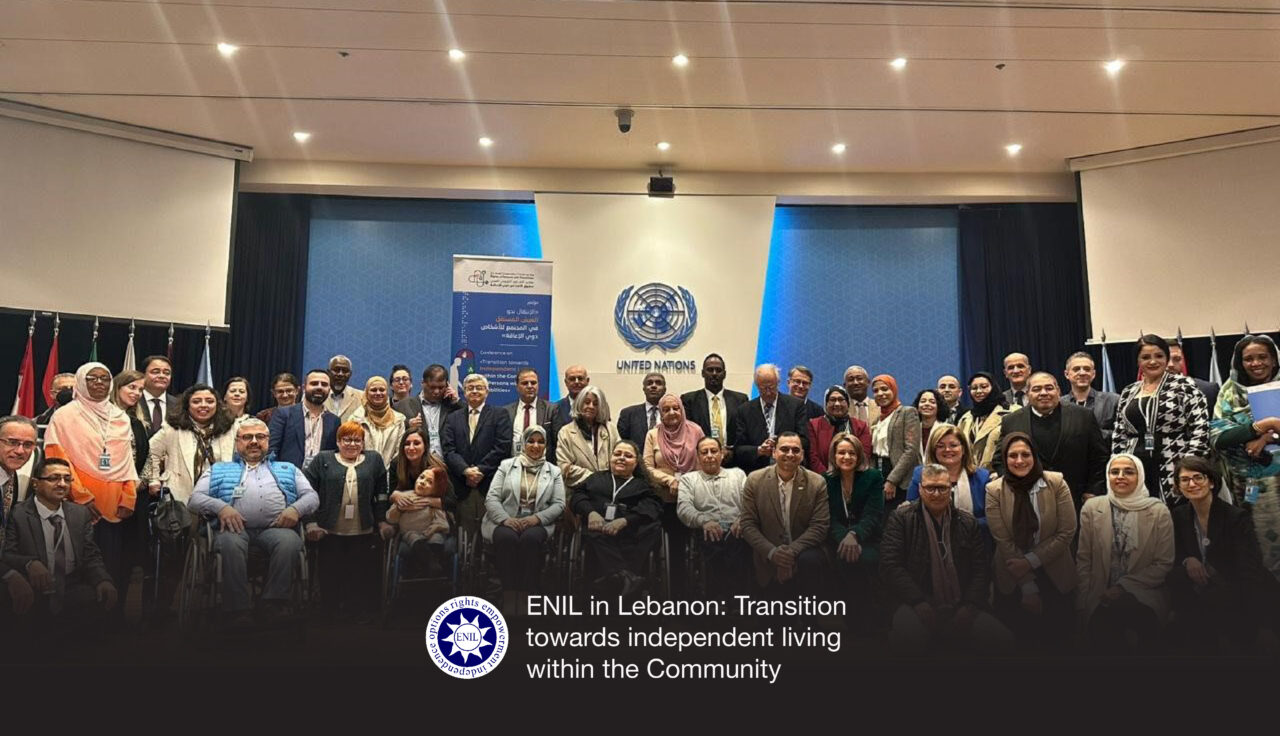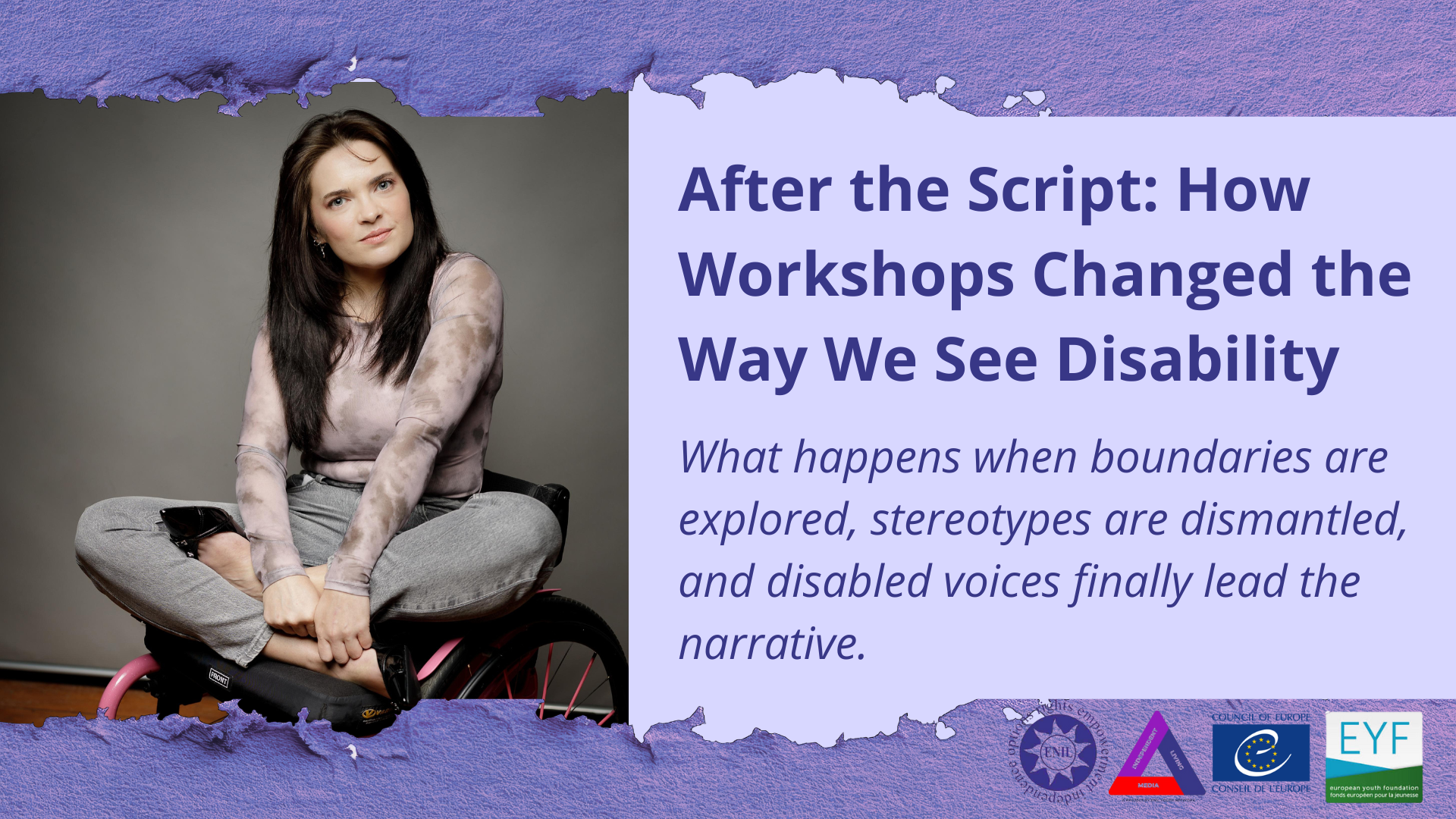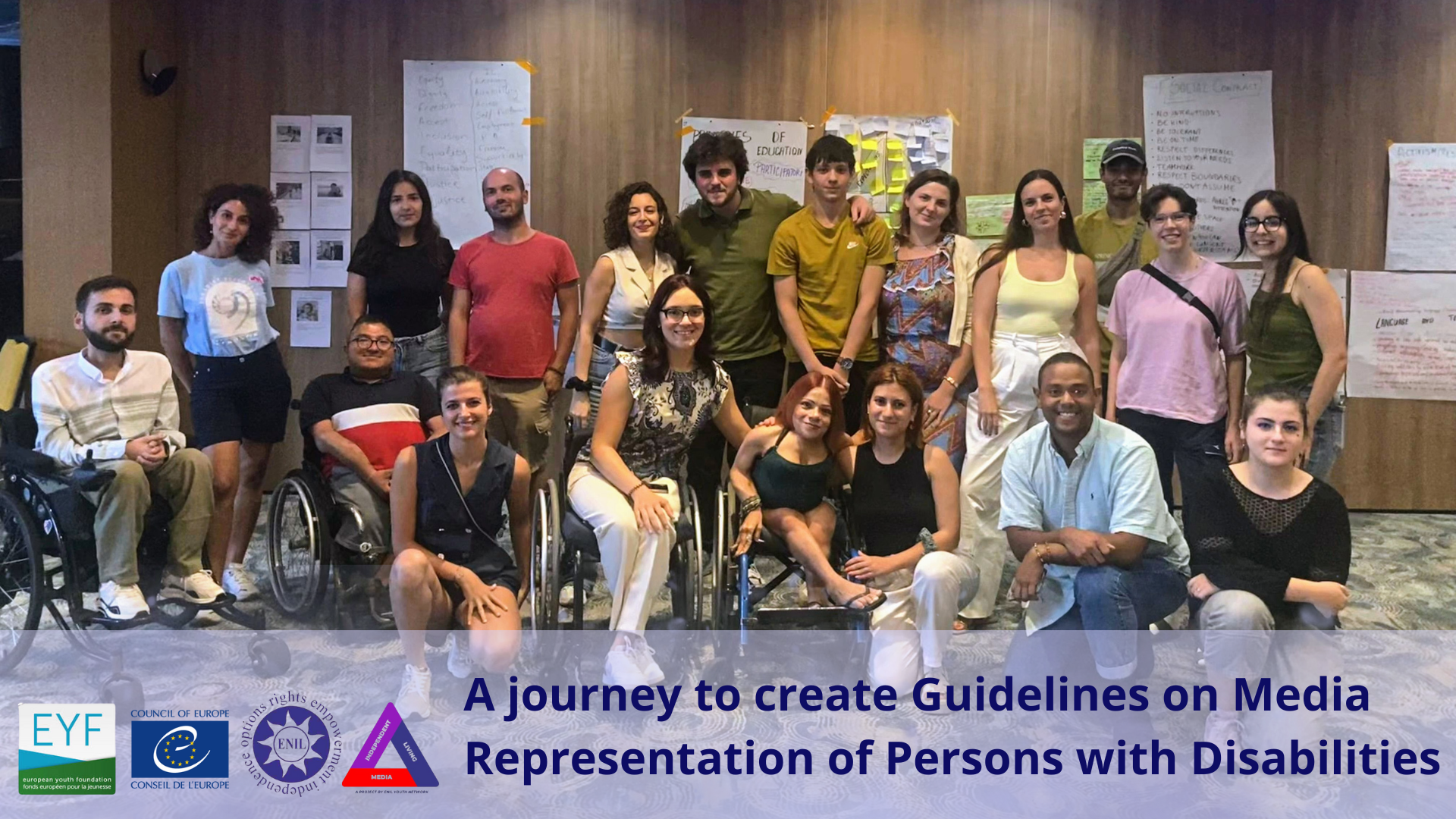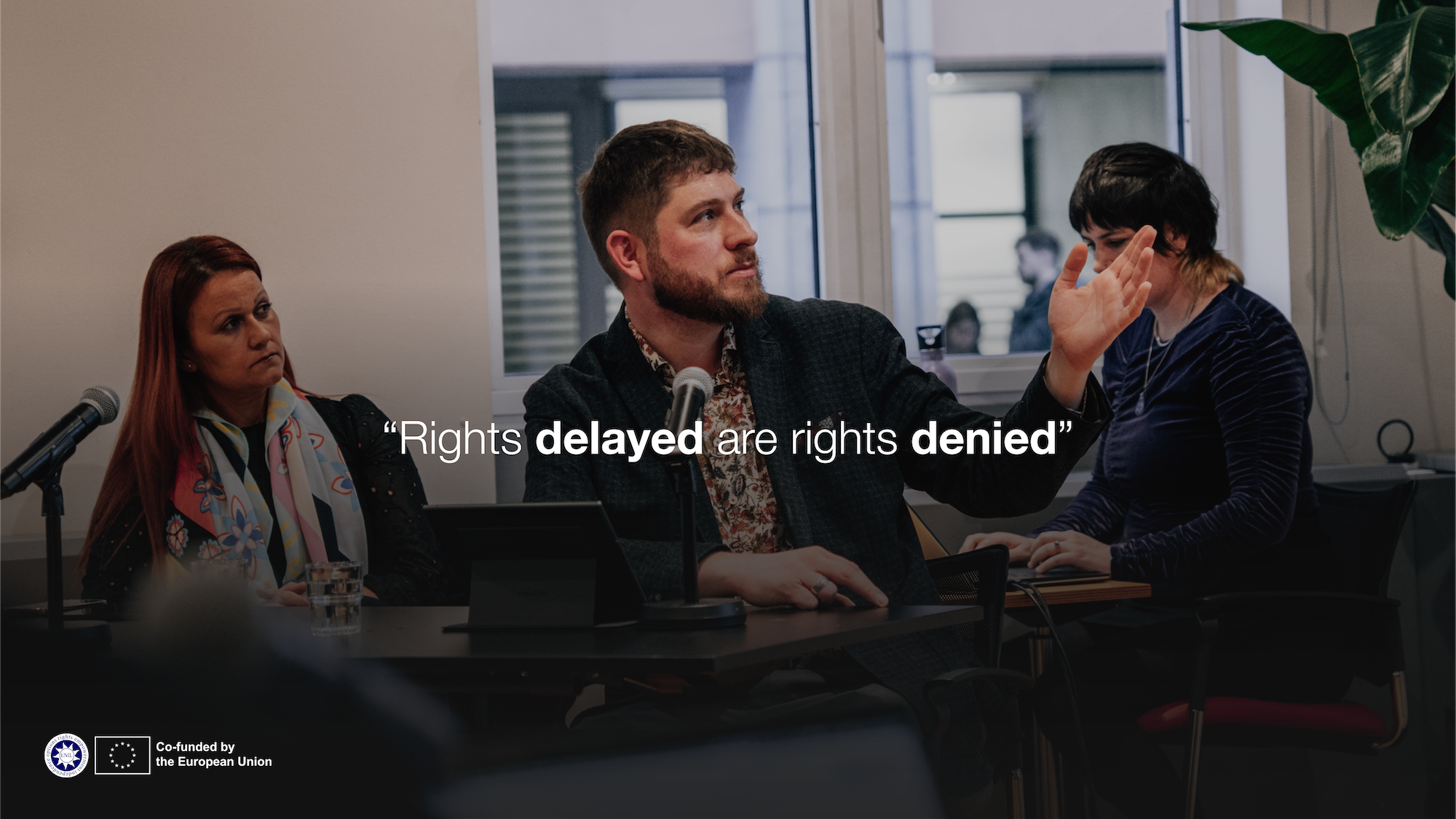On 14-15 February we were invited to the Conference on Transition towards Independent Living within the Community For Persons with Disabilities in Beirut, Lebanon, which was organized by Arab-EU Research Network on Disabilities*. We were represented by Radoš Keravica (ENIL Board member), Laura Alčiauskaitė (ENIL Project Coordinator, TRIPS) and Nadia Hadad (ENIL Co-chair).
1. Rados and Laura’s involvement
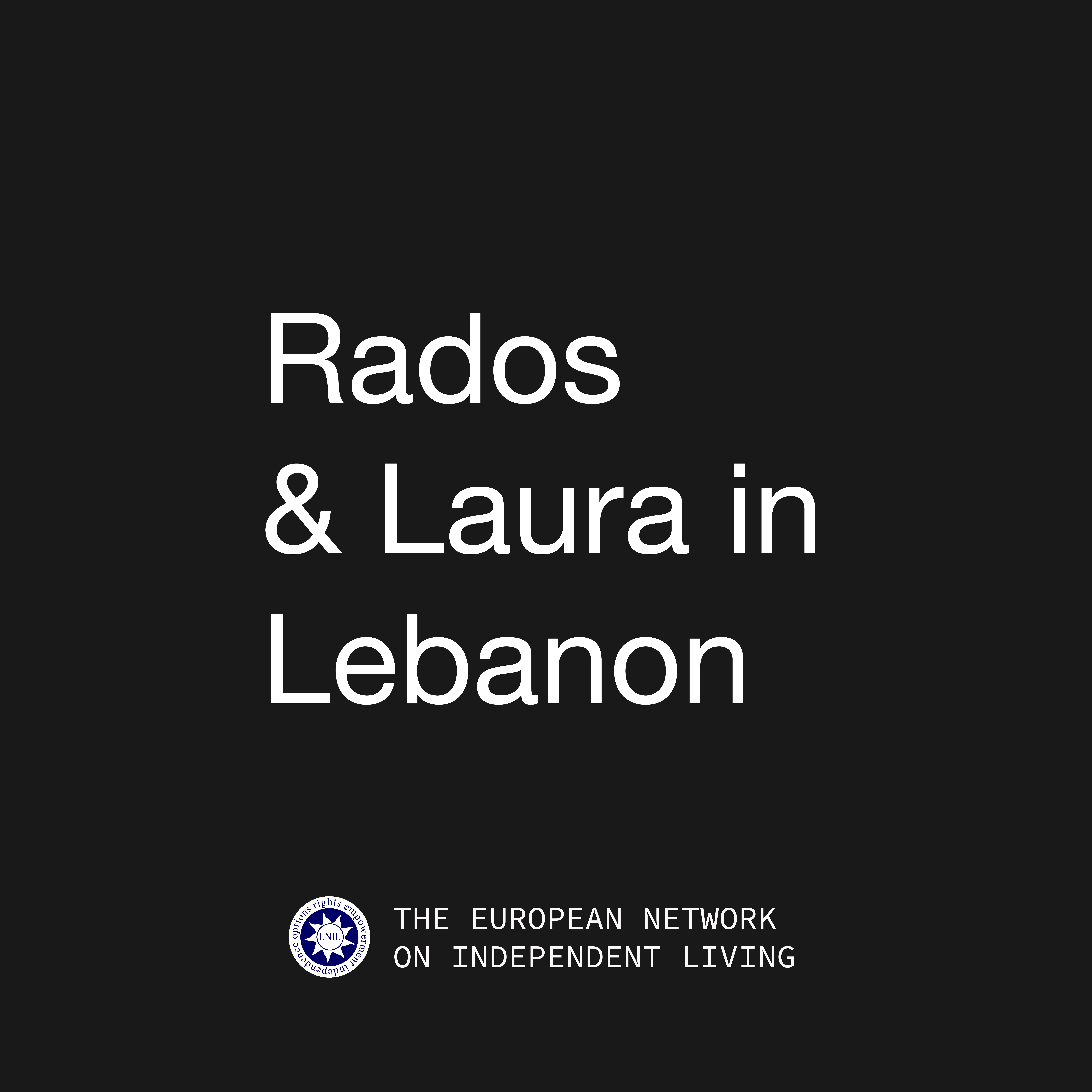
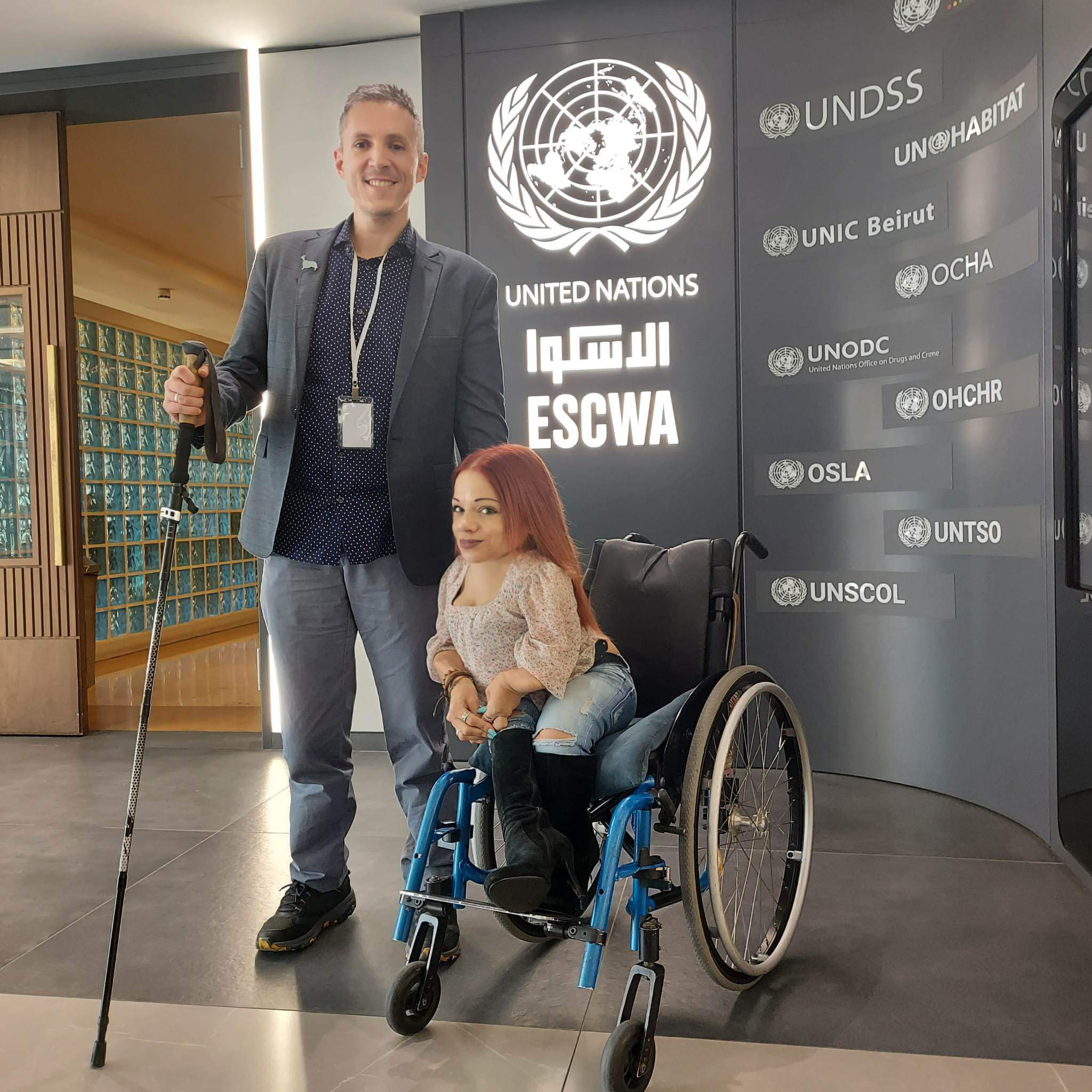
Radoš made a presentation about pathologisation of disabled childhood as an impediment to independent living where he emphasized that disabled children’s participation in important matters that affect them is a human right and that their evolving capacities and increasing levels of autonomy need to be recognised and nurtured by adults.
Meanwhile, Laura talked about the views of persons with different types of impairments towards digital assistive technologies and their willingness to use them. Both presentations will be further discussed in the research papers, which will be released in the upcoming weeks.
2. Key points from Nadia Hadad’s speech
- The biggest challenges is to make governments conscient that if they want to realise Independent Living within the community, respecting the human rights of All, their transition plans should guarantee that people with the most severe impairments, even if it is not so simple, are not excluded and left behind. Like mentioned in the Independent Living Institute’s report: There are 8,760 hours in a year. This means that six persons working full-time are needed to provide this assistance for someone who needs assistance around the clock. Another challenge is implementing the new guidelines on DI Even in emergency situations so that IL stays the main objective despite poverty, armed conflict, infrastructural challenges, disasters or a weak social background.
- An inspiring initiative is one with no direct payment to institutions or any service provider but is one with personal following budgets. It’s a direct payments system, where after introducing a support plan that the person with a disability and his or her network fills in, a multi disciplinarian team evaluate it and determines de support hours needed to realize this, a regional team estimates the priority and the government allocates it. This budget does not take into consideration the person or the family income or the family constitution, it really focuses on the cost of the needed support. Once the person receives this budget, the person can really control and make choices of what kind of support or service he buys in, or be a direct employer of his personal assistants…. There are support organizations if the person wants for every phase (support plan, accountability, administration, etc.). This model should be part of a transversal Deinstitutionalisation plan.
- There’s no need to invest if existing residential institutions provide high quality care or to perform them, they should be closed down anyway, so it’s better to start immediately to invest in local community-based services, family support and personal assistance.
Whatever kind of DI plan a government may establish it must be with a timeline, Enough human, technical and financial resources, meaningful participation off person with disability’s and their representative organisations, cross cutting over all areas of life, taking into account a twin track approach and promoting the rights of persons with disabilities by different campaigns repeatedly and embed their human rights to independent living in the community in all legislations.
A very simple way to monitor if any DI plan would work is to check if the 12 pillars , basic rights needed for disabled people to live independently are guaranteed:
- Appropriate and accessible information- health and social care provision
- An adequate income
- A fully accessible transport system and environment
- Adequate provision of personal assistance and technical aids and equipment
- Availability of accessible, affordable and adapted housing
- Access to inclusive education and training
- Equal opportunities for employment
- Availability of independent advocacy, of self-advocacy and peer counselling
——-
* The Arab-EU Research Network on Disability was founded in 2022 by the Economic and Social Commission for Western Asia (ESCWA), the Government of Malta and the United Nations Special Rapporteur on the Rights of Persons with Disabilities. It acts as an inter-regional platform for knowledge exchange and capacity building. It will bring together academics, researchers and institutions from both Europe and the Arab region for the shared objective of pursing research as a driver for change to ensure greater social inclusion of persons with disabilities.
